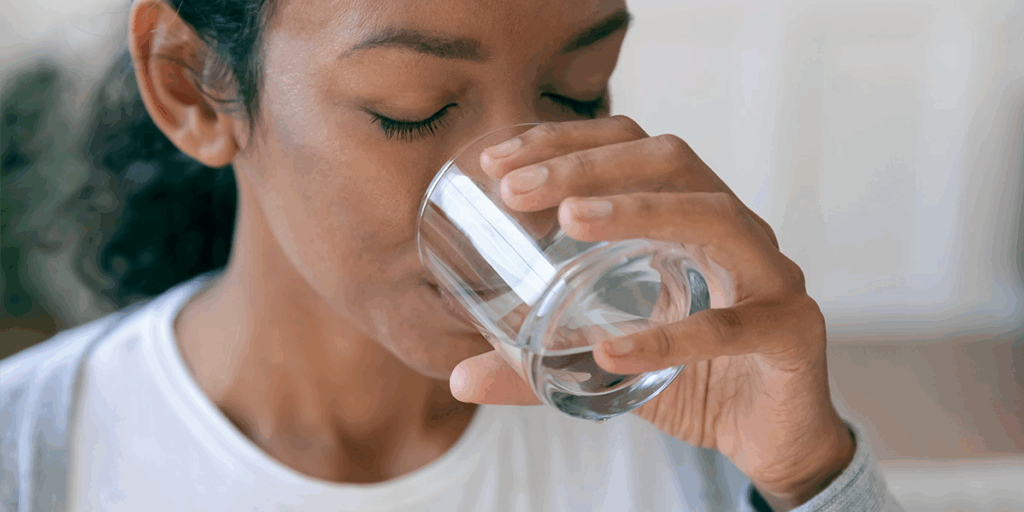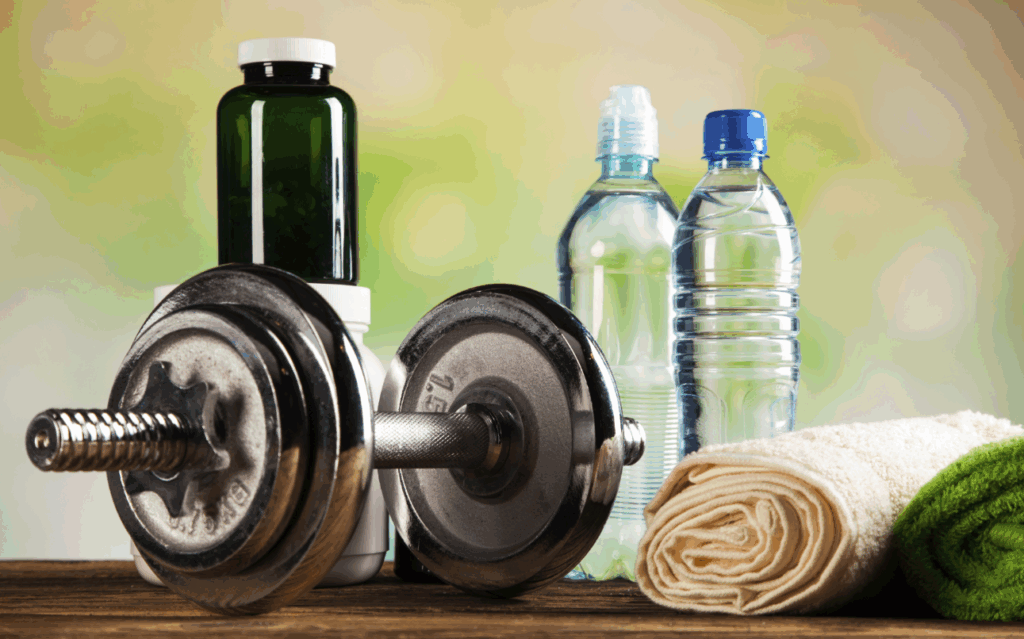To hydrate like a pro boxer, you’ll need to drink 16-20 ounces of water 2-4 hours before training, then sip 16-24 ounces per hour during workouts. Add electrolytes for sessions over an hour, and rehydrate post-training by drinking 16-24 ounces per pound of sweat lost. Monitor your urine color and watch for fatigue or cramping.
These precise hydration protocols separate champions from those who gas out when it matters most.
Understanding Hydration Needs for Boxers
When you’re throwing hundreds of punches and constantly moving around the ring, your body’s working overtime to keep you cool through sweating. That’s where hydration becomes critical.
Boxing triggers intense thermoregulation in athletes, with sweat loss reaching up to 2-3 liters per hour during hard sessions. This rapid fluid depletion disrupts your body’s fluid balance, depleting essential electrolytes like sodium and potassium that power muscle contractions and nerve signals.
Your hydration needs skyrocket compared to other athletes because you’re constantly generating heat through explosive movements while wearing heavy gloves and protective gear. Without proper fluid replacement, dehydration sets in quickly, impairing your speed, power, and decision-making.
Signs of Dehydration in Fighters
Unless you’re actively monitoring your hydration status, dehydration can sneak up on you during intense training sessions. It can manifest through telltale warning signs.
You’ll first notice fatigue hitting harder than usual. Your punches lose snap, and your footwork becomes sluggish. Muscle cramping might strike mid-combination, forcing you to stop and stretch.
Your reaction time takes a nosedive when you’re dehydrated. That split-second delay in slipping punches or countering becomes dangerous in the ring. You’ll struggle with coordination, missing targets you’d normally hit with ease. Mental fog clouds your judgment, making it harder to execute your coach’s instructions.
Watch for dizziness between rounds, excessive thirst, dark urine, and dry mouth. If you’re experiencing multiple symptoms, you’ve already lost 2-3% of your body weight in fluids. This level is enough to impair performance considerably.

Hydration Before Training or Sparring
Before you even wrap your hands, your hydration strategy should already be in motion. Proper pre-training hydration starts 2-4 hours before stepping into the gym. Consume 16-20 ounces of water during this window, allowing your body time to absorb and distribute fluids effectively.
Your pre-fight hydration protocol should include sodium. Aim for 200-400mg to enhance fluid retention management. This electrolyte balance prevents excessive urination and keeps water in your muscles and bloodstream. Add a little bit of sea salt to your water, or use an electrolyte powder specifically designed for athletes.
Don’t chug everything at once. Instead, sip steadily to optimize absorption. About 20 minutes before training, drink another 8 ounces to top off your hydration levels.
Hydration During Training
As sweat drips down your face during those intense mitt work sessions, you’re losing more than just water. You’re depleting essential electrolytes that keep your muscles firing and reflexes sharp. Your water intake should match your sweat rate, typically 16-24 ounces per hour of training. Don’t wait until you’re thirsty; that’s already too late.
Your athletic hydration strategy needs precise hydration timing. Sip every 10-15 minutes between rounds. For sessions over an hour, sports drinks become critical for replacing sodium and providing quick carbs. Mix 6-8% carbohydrate solutions to maintain energy without stomach upset.
Your nutrition depends on smart fluid choices. Plain water works for shorter sessions, but electrolyte-enhanced options prevent cramping during longer workouts. Monitor your urine color. Pale yellow means you’re on track.

Post-Training Rehydration
Once you’ve wrapped your hands and stepped out of the ring, you are just beginning your rehydration. Your post-training protocol directly impacts recovery optimization and tomorrow’s performance.
Weigh yourself before and after training. For every pound lost, drink 16-24 ounces of fluid. A pro boxer losing 3 pounds needs 48-72 ounces for complete rehydration. Don’t gulp it all at once. Spread intake over 2-4 hours.
Mix water with electrolytes and add a pinch of salt to enhance absorption. Include carbohydrates to replenish glycogen stores simultaneously. This approach serves dehydration prevention and weight-class preparation.
Skip alcohol, which interferes with rehydration. Instead, pair fluids with a balanced meal containing sodium. Your kidneys will retain more fluid, ensuring you have the strength for your next session.
Making Weight Without Sacrificing Hydration
The rehydration strategies you’ve mastered become even more critical when you’re cutting weight for competition. You’ll need to manipulate water intake carefully without compromising performance. Start your water cut 5-7 days before weigh-ins, gradually reducing sodium and water intake. Don’t cut more than 5-10% of your body weight through dehydration alone.
Time your final water restriction to 16-24 hours before weighing in. After gaining weight, you’ve got a narrow window to rehydrate effectively. Begin with small sips of electrolyte solution immediately post-weigh-in. Consume 150% of the weight you’ve lost over the next 24 hours. Prioritize sodium-rich fluids and carbohydrate drinks to restore muscle glycogen.
Supplements and Tools for Better Hydration
Three key supplements can transform your hydration game from amateur to professional level. Electrolyte powders deliver precise sodium, potassium, and magnesium ratios that plain water can’t match. Mix them into your training bottles for ideal absorption and performance maintenance.
Hydration tablets offer convenience when you’re traveling or need quick preparation. They dissolve fast and provide consistent electrolyte concentrations without excess sugar. For extreme dehydration cases, IV therapy remains the gold standard for rapid rehydration, though it requires medical supervision.
Natural options work, too. Coconut water provides potassium and natural sugars, while simple salt packets mixed with water create budget-friendly electrolyte solutions. Glycerol supplements can help your body retain water before weigh-ins, but take them 2-4 hours before you need peak hydration.

Long-Term Hydration Habits
When you’re tracking your daily hydration over months and years, consistency beats perfection every time. Set a baseline of 3-4 liters daily, adjusting for training intensity and climate. Use a marked water bottle or hydration app to monitor intake without obsessing over exact measurements.
Drink 500ml upon waking, sip steadily between meals, and avoid chugging large amounts with food. It will dilute digestive enzymes. Stop heavy drinking two hours before bed to prevent sleep disruption.
Your lifestyle choices matter. Each alcoholic drink requires an extra glass of water to offset dehydration. Limit caffeine to pre-training only, as it’s a mild diuretic. During rest days, maintain your hydration routine. Your body is still recovering and rebuilding from previous sessions.
Frequently Asked Questions
What Are the Best Hydration Practices for Training in High Altitude?
You’ll need to drink more water at high altitudes since you lose fluids faster through breathing. Start hydrating days before, increase your intake by 1.5-2 liters daily, and add electrolytes to combat altitude’s dehydrating effects.
How Does Age Affect a Boxer’s Hydration Requirements?
As you age, your body’s thirst signals weaken, and kidney function declines, making dehydration easier. You’ll need more conscious effort to drink regularly, monitor urine color, and increase electrolyte intake to maintain proper hydration levels.
Can Certain Medications Interfere With Proper Hydration Strategies?
Yes, medications can definitely interfere with your hydration. Diuretics, blood pressure meds, and antihistamines increase fluid loss. You’ll need to adjust water intake and monitor your body’s response more carefully when taking these medications.
What Hydration Adjustments Should Female Boxers Make During Menstruation?
You’ll need extra sodium and magnesium during your period since you’re losing more through menstruation. Increase water intake by 10-15% and add electrolyte supplements to combat bloating, cramping, and the additional fluid shifts happening.
How Do Climate and Humidity Impact Hydration Needs During Fights?
Climate and humidity dramatically affect your sweat rate during fights. In hot, humid conditions, you’ll lose fluids faster and struggle to cool down. You’ll need to increase water intake and electrolyte replacement before stepping into the ring.





